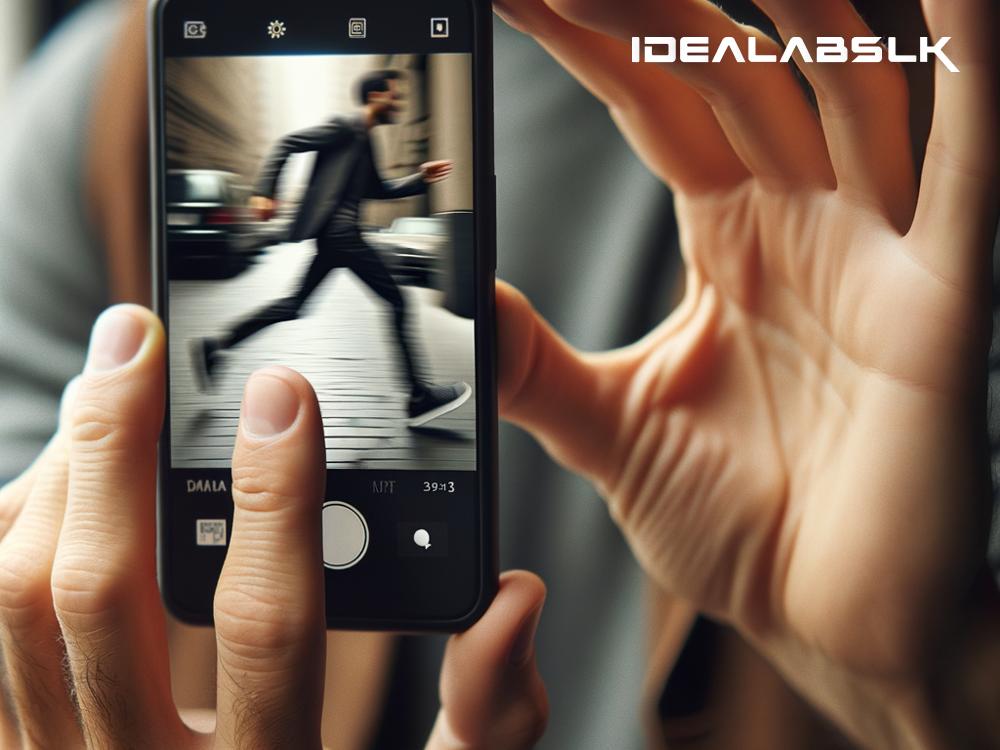Why Your Smartphone Camera Focuses Slowly
Have you ever tried to capture a magical moment with your smartphone, only to miss it because your camera took too long to focus? It can be frustrating when your device doesn't keep up with your requirements, especially in an age when smartphones are central to our daily lives. So, what causes this lag, and what can you do about it? Let's break it down into simple terms.
Understanding Autofocus
The first step to solving a problem is understanding it. Your smartphone camera uses a feature called autofocus to automatically adjust the camera lens to focus on a subject. Imagine your eyes adjusting when you look from a butterfly on a flower to a distant mountain. Your phone does something similar to ensure that your pictures come out sharp rather than blurry.
Reasons Your Smartphone Camera Focuses Slowly
Several factors can slow down this autofocus process. Let's explore the most common ones:
-
Low Light Conditions: Autofocus relies heavily on contrast to determine the sharpness of an image. In low light, there's less contrast for your camera to detect, which can slow the focusing process. Your phone's camera struggles more in dim conditions, much like how your own eyes need time to adjust when you walk into a dark room.
-
Lens Is Dirty or Scratched: If the lens on your smartphone is dirty or has scratches, it can hinder the camera's ability to focus quickly. Dust, fingerprints, and scratches scatter light entering the lens, confusing the autofocus mechanism and leading to delays.
-
Outdated Camera Software: The software that controls the camera also plays a significant role in focusing speed. If this software is outdated, it might not be optimized for quick focusing. Manufacturers often release updates that can improve camera performance, so missing these updates can mean missing out on speed improvements.
-
Hardware Limitations: Some smartphones simply don't have the best hardware for fast autofocus. Lower-end models may use slower focusing mechanisms as a way to keep costs down. Conversely, higher-end models often include features like phase detection or laser autofocus, which are much faster.
-
Overcrowded Scene or Multiple Moving Subjects: When there's a lot happening in your frame, your camera might struggle to decide on what to focus. Multiple moving subjects or a cluttered scene can confuse the autofocus mechanism, leading to delays.
Improving Your Smartphone Camera's Focus Speed
Now that we've identified the common culprits behind slow autofocus, here are some practical tips to speed things up:
-
Enhance the Lighting: Since low light is a significant factor, try to take photos in well-lit conditions whenever possible. If you're indoors, move closer to a window or switch on more lights.
-
Keep the Lens Clean and Clear: Regularly clean your smartphone's lens with a soft, lint-free cloth. Be gentle to avoid scratches, and consider using a protective case that keeps the lens covered when not in use.
-
Update Your Camera Software: Always keep your smartphone updated to the latest software version. Not only does this address potential security issues, but it can also include optimizations for your camera's performance.
-
Use Manual Focus (If Available): Some smartphone cameras offer a manual focus option. Though it requires a bit more effort on your part, manually adjusting focus can be faster in certain situations, especially if you're dealing with a crowded scene.
-
Upgrade Your Device: If you've tried everything and your camera still focuses slowly, it might be time to consider an upgrade. Newer models often come with improved camera hardware and software that can significantly enhance your photography experience.
Closing Thoughts
It's remarkable how a device that fits in our pocket can capture moments that mean the world to us. By understanding the limitations of smartphone cameras and taking steps to mitigate them, you can greatly improve your chances of snapping that perfect shot without delay. Remember, a little bit of maintenance, the right conditions, and sometimes a software update are all it takes to keep your photography game on point.

